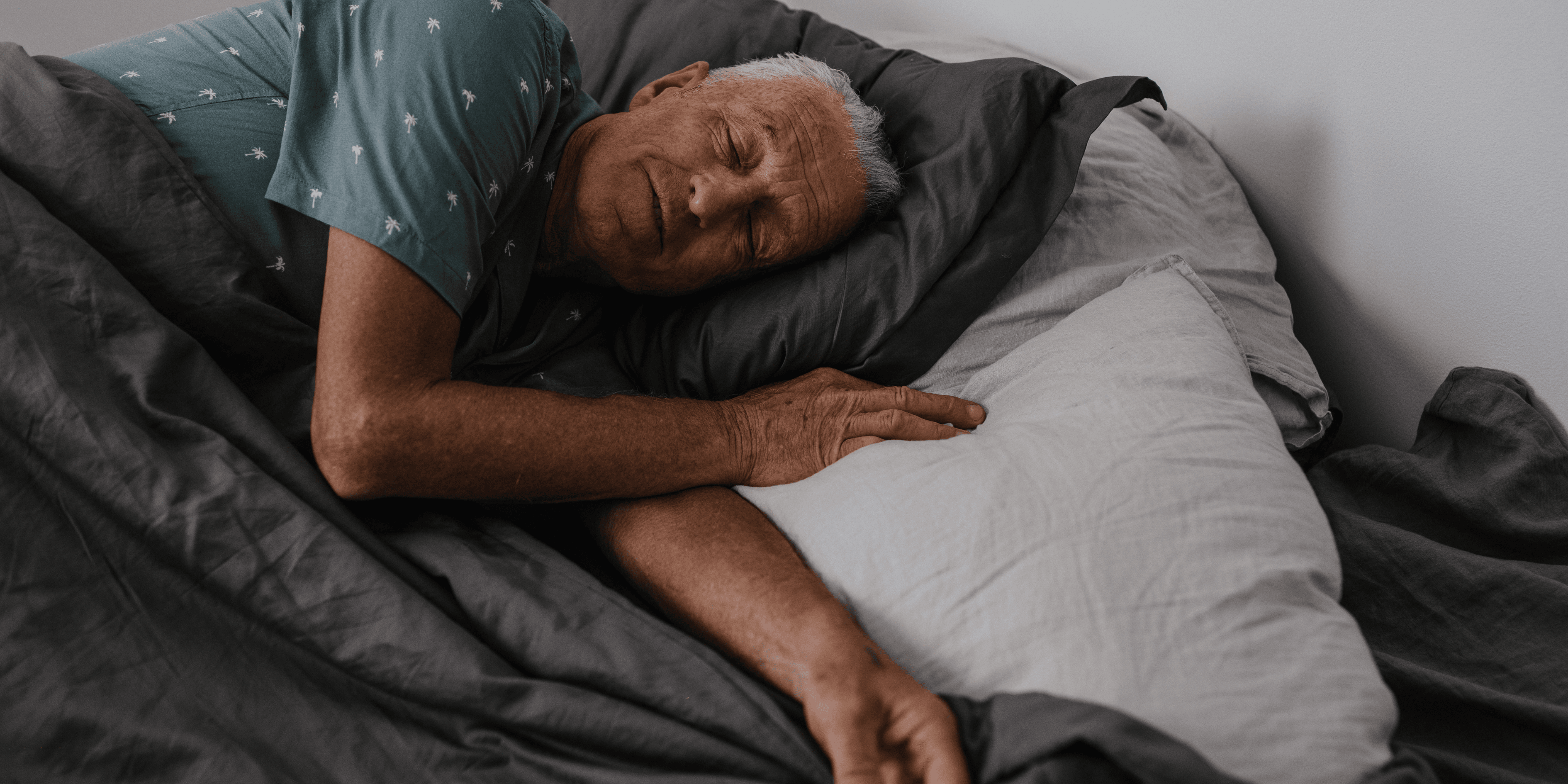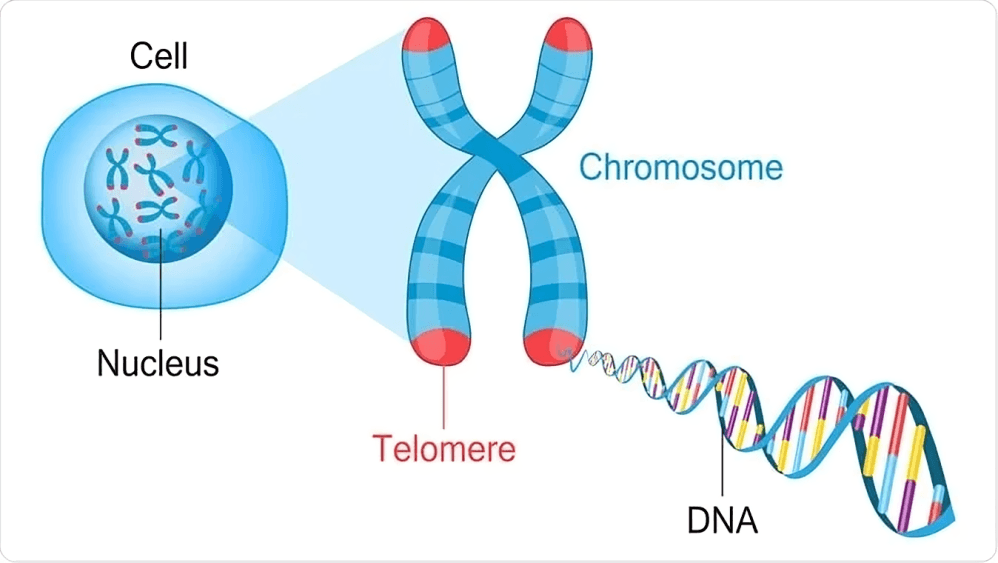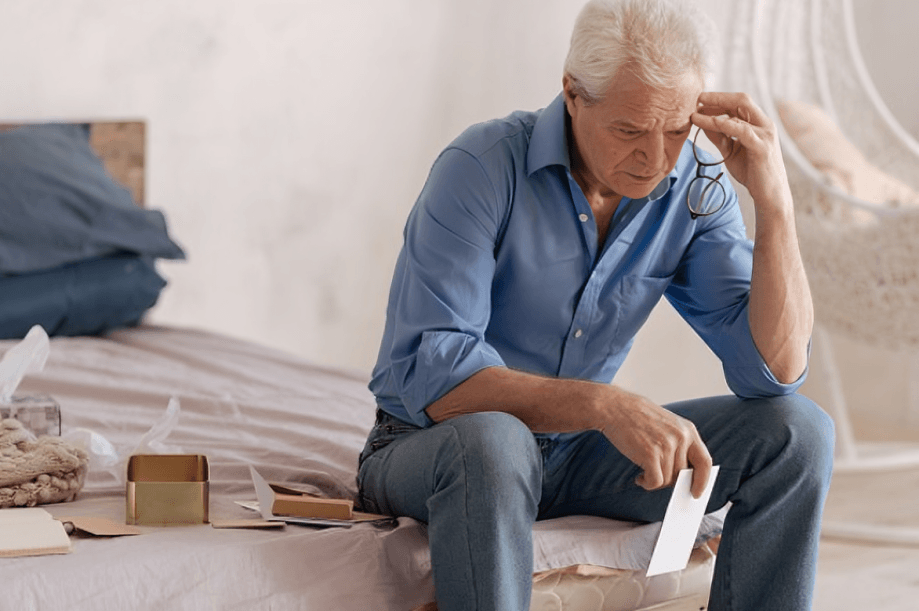
“
The connection between sleep and aging is deeper than many realize. Good sleep isn’t just about feeling refreshed—it's tied to longevity, cellular health, memory, mood, and even resistance to age-related diseases. Poor sleep speeds up biological aging and weakens physical and mental functions. 1
1
”
During deep sleep, the brain clears out toxins like beta-amyloid, which are linked to Alzheimer’s. This natural detox process helps keep memory sharp and delays signs of cognitive aging. 1
People over 65 often experience shorter sleep cycles, but research shows that 7 to 8 hours of consistent, quality sleep is crucial to maintaining good health and slower biological aging. 2

Poor sleep is associated with shortened telomeres—the protective ends of DNA strands. Short telomeres indicate cellular aging and higher disease risk, meaning sleep directly influences your rate of aging.
The body produces growth hormone during sleep, especially in early non-REM stages. This hormone supports tissue repair, muscle growth, and bone strength—functions that are essential for aging well. 3
Chronic insomnia in older adults is linked with increased inflammation, which plays a major role in arthritis, heart disease, and other age-related illnesses that speed up the aging process. 4
The circadian rhythm, our internal clock, naturally shifts with age, making it harder to fall or stay asleep. Adapting bedtime habits can help seniors maintain restful sleep and mental clarity. 5
A Harvard study found that seniors with regular sleep patterns had better concentration, lower risk of depression, and more independence, showing how sleep supports both mental and emotional resilience. 6
REM sleep is key for emotional regulation and processing memories. Less REM in aging brains may increase stress, sadness, or irritability, making deep sleep essential for healthy aging. 7
People who nap too long or too often may disrupt nighttime sleep cycles, which can accelerate mental decline in older adults. Moderation in daytime rest is critical for aging well. 8

Sleep-deprived individuals often experience a drop in collagen production. Collagen keeps skin smooth and elastic, meaning insufficient rest can lead to faster skin aging and wrinkles.
Light exposure, especially blue light at night, disrupts melatonin production. Melatonin is vital for regulating sleep cycles and has antioxidant properties that slow down cellular aging. 9
Studies show older adults who sleep poorly are more likely to develop high blood pressure. Healthy sleep supports vascular function and reduces cardiovascular risk, especially after middle age. 10
A good night's sleep helps balance hormones like cortisol and insulin. Imbalanced hormones speed up aging by increasing belly fat, lowering immunity, and weakening bones and skin. 11
Restorative sleep improves metabolism and muscle maintenance, which are harder to manage with age. Better metabolism helps keep energy levels high and prevents frailty in older adults. 12
People with sleep apnea—common in older adults—face more rapid aging signs, including heart strain and memory issues. Treating apnea significantly improves both lifespan and quality of life. 13

Deep sleep improves immune response. As immunity weakens with age, quality sleep becomes more essential to help older adults fight infections and recover from illnesses more effectively.
A University of California study linked regular sleep to stronger bones in postmenopausal women. This suggests sleep protects against osteoporosis, a health concern among aging populations. 14
The consistency of bedtime and wake times influences longevity. Seniors with erratic schedules tend to have poorer health outcomes and are at greater risk for diabetes and cognitive decline. 15
People who maintain good sleep hygiene—like limiting caffeine and screen use before bed—age with fewer cognitive and cardiovascular complications, underlining the importance of sleep habits. 16
Roman philosopher Seneca believed rest was the soul’s refuge. Today, science supports that idea: consistent, restorative sleep is one of the most powerful tools for aging gracefully and wisely. 17


